COVID-19 pandemic: U of T Engineering stories

Three cool virtual labs: How U of T Engineering instructors are getting creative with remote active learning
A camera and a bottle of Gatorade were the key pieces of equipment for a recent virtual lab in Professor Jennifer Farmer’s (ChemE) course, CHE204: Applied Chemistry. “We told students that they’d have to determine the amount of food dye in the drink,” explains Farmer. Any other year, students would learn to operate a spectrometer to find the answer. “Well,...
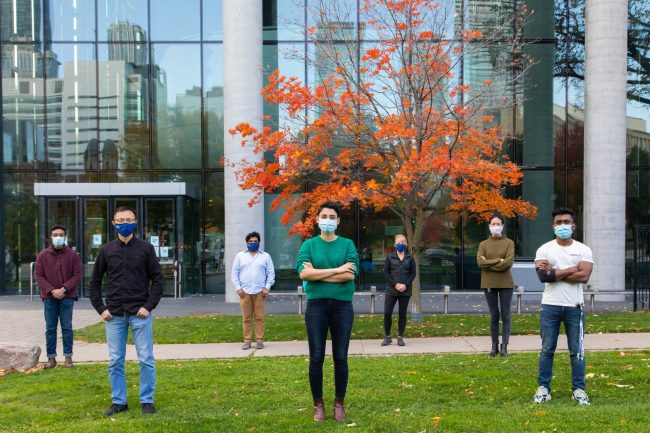
Rapid COVID-19 testing: U of T team ditches cotton swabs for sensing probes
Amid a rise in positive COVID-19 cases — and a reported backlog to book tests and receive results in Ontario — Health Canada has approved four rapid-testing devices that could return results within 15 minutes. Meanwhile, U of T researchers are working on an approach that could produce results in five. The project is a collaboration between researchers at U...
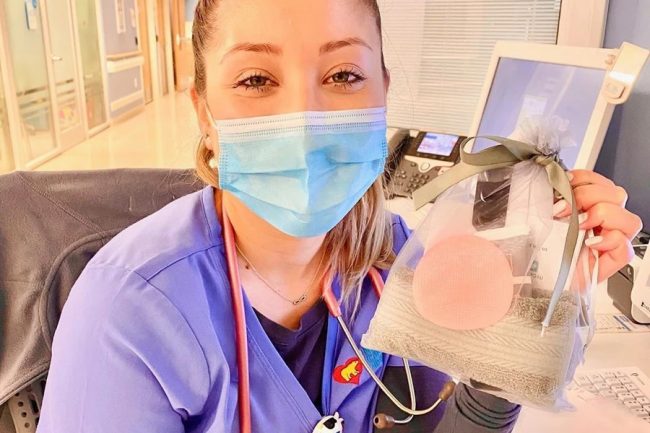
Skin-care product based on U of T Engineering research donated to health-care workers fighting COVID-19
A U of T Engineering spinoff company has donated its entire stock of skin-care product to health-care workers fighting the global pandemic. Several years ago, Professor Milica Radisic (BME, ChemE) and her team developed a peptide-hydrogel biomaterial that prompts skin cells to “crawl” toward one another. The material was initially designed to help close the chronic, non-healing wounds often associated...
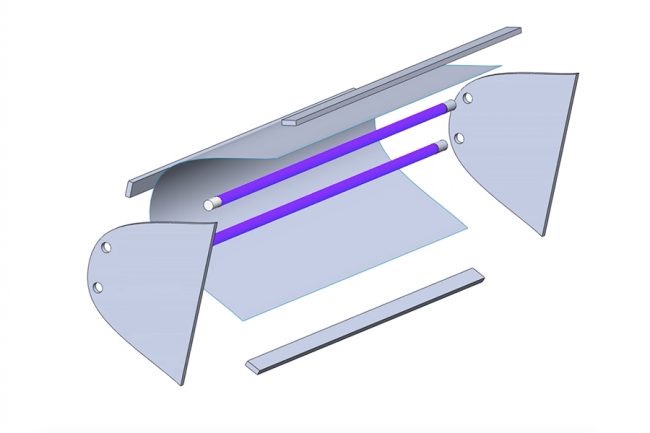
Smart UV lamp to fight COVID-19: One of 87 student-led projects to receive funding from Mitacs Research Training Awards
Bipasha Goyal (Year 3 EngSci) is creating what she hopes will be the newest line of defence against the global COVID-19 pandemic: a smart UV lamp. “Hospitals already use a similar method called ultraviolet germicidal irradiation (UVGI) to sterilize operating theatres and other spaces,” says Goyal. “The challenge is that these systems are very expensive, and it’s hard to ensure...
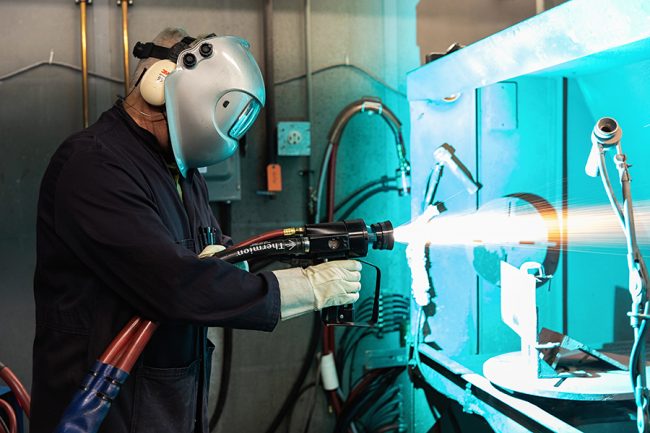
Anti-viral copper coatings could help slow transmission of COVID-19
A U of T Engineering team is developing a new way to coat minute particles of copper onto the inside of fabrics, such as those used in face masks. The technology could provide an additional layer of safety to help slow the spread of COVID-19. The goal is to deposit very fine copper particles onto both woven and non-woven fabrics...
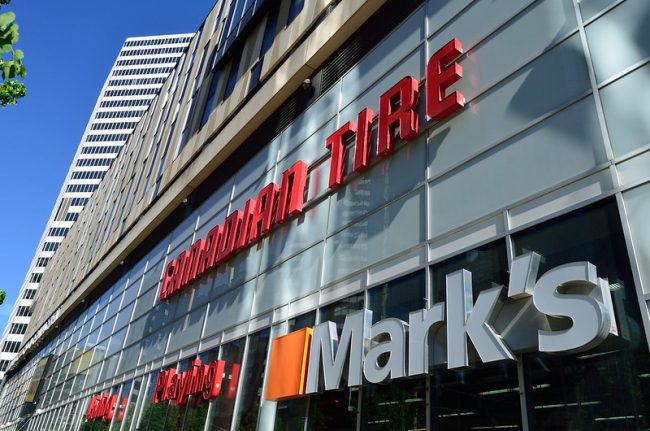
Resiliency during COVID-19: How one Canadian supply chain is adapting to serve its customers
The economic impact of COVID-19 has rippled through industries across the world. Businesses everywhere have dealt with sudden closures, new health and safety rules and disruptions to the supply chain. For alumnus Dan Chan (IndE 9T0), vice president of supply chain strategy at Canadian Tire Corporation (CTC), the pandemic has presented the greatest challenge of his career, testing his expertise...

Can COVID-19 contact tracing and exposure notification apps protect both your health and your privacy?
Exposure notification apps, such as COVID Alert — to be launched by the Canadian federal government this month — could be key tools for countries as they work to reduce the spread of COVID-19. But as public health officials are evaluating COVID Alert’s efficacy in the fight to stop the spread of the virus, Professor David Lie (ECE) is closely...
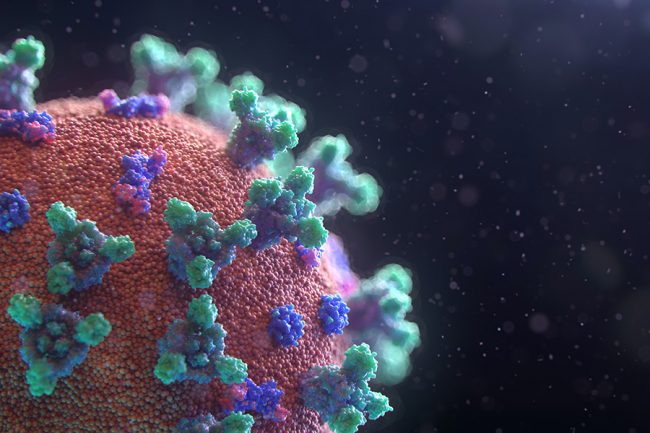
Understanding the spread of COVID-19 through physics-based modeling
Professor Swetaprovo Chaudhuri (UTIAS) normally spends his time thinking about the motion of fluids through jet engines. Now, that expertise is being used to understand the spread of COVID-19. “In aircraft engines, fuel is injected into the combustor in a fine spray of droplets with sizes somewhat similar to what is ejected while coughing or sneezing,” he says. “While the...

Students spark new solutions for COVID-19 challenges
As the COVID-19 pandemic rearranged the plans of students across U of T Engineering over the past few months, one question was on many minds: what can I do to help? Now, dozens of students are taking action. The U of T COVID-19 Student Engagement Awards were created to fund inspiring innovations designed to respond to the COVID-19 crisis to...
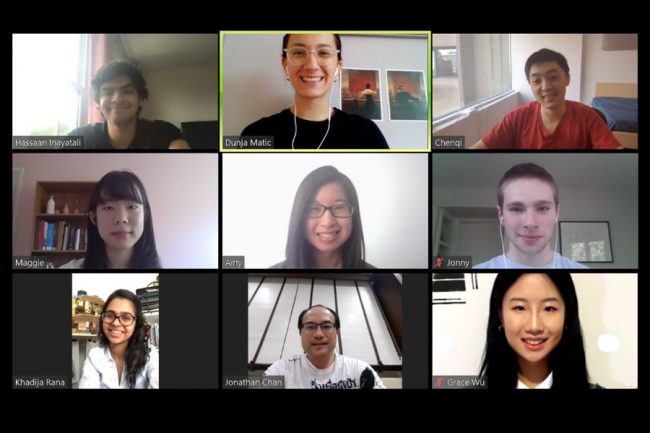
What undergraduate summer research looks like in the time of COVID-19
Lauren Streitmatter (Year 2 EngSci) thought she’d be heading to Imperial College London this summer, but the pandemic had other plans. “I was really looking forward to the hands-on experience working in a research lab, as well as going to Europe for the first time,” she says. “After that fell through, I didn’t have many ideas for a new summer...
MEDIA CONTACT
Fahad Pinto
Communications & Media Relations Strategist
416.978.4498
fahad.pinto@utoronto.ca